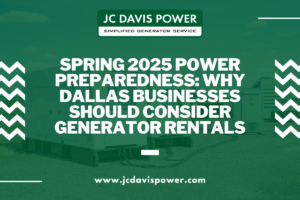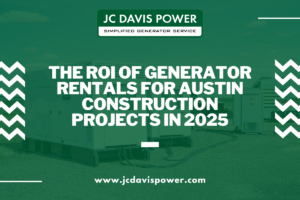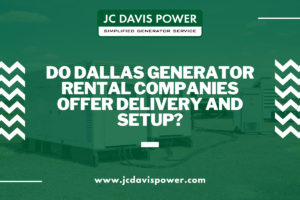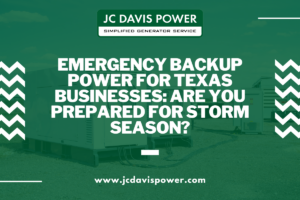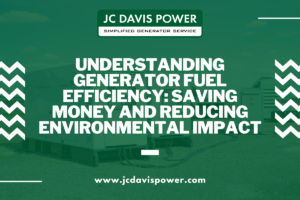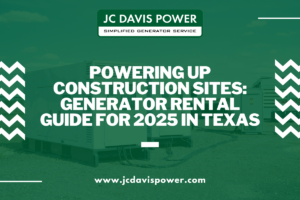Power outages can happen at any time and being prepared with a reliable backup generator is crucial to keep your home or business running smoothly. Choosing the right high uptime generator takes some careful consideration but is well worth the effort to ensure you have power when you need it most.
Determine Your Power Requirements
The first step is calculating your power requirements so you select a generator with adequate capacity. Take an inventory of essential appliances and devices, noting their wattages usually listed on a label. Common high-draw items are refrigerators, freezers, furnaces, air conditioners, and sump pumps. Also factor in important electronics like computers, lights, and medical devices if applicable.
As a rule of thumb, choose a generator that provides 30% more power than your total calculated load to allow for startup surges. An electrician can conduct a detailed assessment if you need help determining your requirements.
Consider Fuel Type
The main portable generator fuel types are:
- Gasoline – Most affordable and readily accessible fuel. Requires proper storage and ventilation.
- Propane – Convenient clean-burning fuel but requires an additional propane tank.
- Diesel – More expensive but very efficient for high runtimes. Stores well long-term.
- Natural Gas – Hooks up to existing gas lines for automatic fuel supply. For standby installs.
If opting for gasoline or diesel, calculate expected runtime by generator fuel tank size and consumption rate. Plan for adequate extra fuel storage based on your expected outage duration.
Choose Between Portable and Standby
- Portable – Lower cost, mobile generators good for temporary use. Require manual start and fuel replenishment. More noisy.
- Standby – Permanently installed, automatically starts on outage detection. Quieter and more convenient but pricier. Runs on natural gas or large external propane tank.
Evaluate your budget, outage expectations, and convenience factors to select the best type for your situation.
Consider Runtime Needs
Runtime, or uptime, is a crucial specification based on your outage duration needs:
- Standby Rating – For intermittent outages less than 200 hours/year. Lower cost.
- Prime Rating – For extended outages of 500-unlimited hours/year. More heavy-duty.
- Continuous Rating – For unlimited 24/7 operation for off-grid sites. Most rugged and reliable.
Choose a runtime rating that matches your expected outage duration. Prime or continuous ratings have a higher initial cost but pay off for frequent long outages.
Ensure Sufficient Power Quality
- Inverter generators provide stable clean power ideal for sensitive electronics. More expensive but worthwhile for home backup power.
- Higher kVA ratings allow stable voltage during high electrical loads and motor starting. Avoid too small a generator that strains to meet demand.
- Voltage regulation maintains consistent output as appliances cycle on/off. Look for ±1% or better for electronics.
- Frequency regulation keeps steady 60 Hz output frequency for motor loads. ±5% or better is preferred.Paying for better power quality ensures reliable operation for the long haul.
Consider Generator Mobility
If you need to reposition your generator, choose a model with wheels and folding handles for convenient transport, even when fueled. Locking wheels prevent rolling.
Larger units may require a trailer with brakes for road towing. Professional transport is recommended for very heavy generators.
Choose Reputable Generator Brands
Stick with major commercial generator manufacturers like Generac, Cummins, Caterpillar, Kohler, and Honda who provide strong warranty and service support.Larger industrial generators tend to be the most reliable and durable for home standby use. Diesel models offer the highest runtimes.
Install Your Generator Safely
Always follow all electrical codes and manufacturer instructions for generator installation.
- Portables – Only operate outdoors away from doors, windows, and vents. Secure from theft. Employ ground fault circuit interrupters.
- Standby – Hire a licensed electrician for automatic transfer switch installation to safely integrate with home wiring.
- Indoor units – Require extraction systems to avoid dangerous carbon monoxide buildup.
- Outdoor units – Should have weatherproof sound attenuating enclosures to direct noise away from neighbors.
Don’t cut corners when installing your backup power system. Consistent professional maintenance is also essential for longevity and safety.
Getting prepared with a suitable high uptime backup generator gives peace of mind that you’ll have reliable electricity to maintain normalcy when the next blackout hits. Carefully calculating your needs and selecting the right generator size, fuel type, mobility, power quality, and installation method will ensure your backup system keeps working reliably over years of service.
Choose High-Functioning Generator Rentals from JC Davis Generator Rental if you need temporary or long-term generator power. Their fleet of late-model industrial generators ensures reliable prime and standby power on demand. With all-inclusive generator rental packages and certified technicians, JC Davis simplifies keeping your home or jobsite powered through any grid outage.
